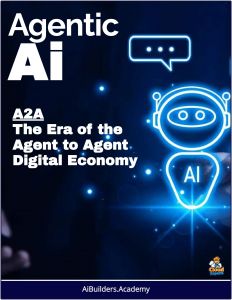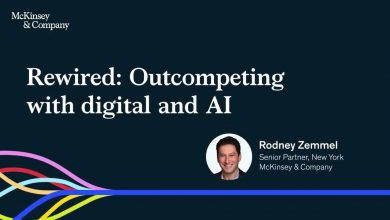 The healthcare claims industry is a critical component of the U.S. healthcare system, facilitating the financial transactions between healthcare providers, insurers, and patients.
The healthcare claims industry is a critical component of the U.S. healthcare system, facilitating the financial transactions between healthcare providers, insurers, and patients.
It involves the submission, processing, adjudication, and payment of claims for medical services, ensuring providers are reimbursed for care delivered.
Each year, approximately 3 billion claims, valued at over $3 trillion, are processed, but the system is complex, involving intricate coding (e.g., ICD-10, CPT), payer policies, and regulatory requirements. Challenges like claims denials—impacting 15-20% of submissions in 2023—cost providers billions annually in lost revenue and administrative expenses, while delays and disputes can disrupt patient care.
The industry is shaped by stakeholders including hospitals, insurers, clearinghouses, and technology vendors, all navigating a landscape of rising costs, regulatory pressures, and demands for efficiency and transparency. Innovations like automation and AI are increasingly vital to streamline processes and address systemic inefficiencies.
In this article we explore xx.
Featured Vendor: Assignment
In the featured video xx,
They provide a solution for x.
Agentic Process Automation
Agentic AI—autonomous systems capable of proactive decision-making, learning, and interaction with complex environments—could significantly mitigate the $262 billion in denied healthcare claims by streamlining processes, reducing errors, and improving transparency.
Agentic Process Automation (APA) refers to the Ai-driven evolution of RPA – Robotic Process Automation, forming one of the core foundations of Agentic Ai.
Automating and Optimizing Claims Submission
Experian Health’s 2023 report notes that denials often stem from missing/inaccurate data, lack of authorization, or incomplete patient information, costing providers $25.7 billion in adjudication. Agentic AI can address this through:
- Proactive Data Validation: Agentic AI can analyze claims before submission, cross-referencing patient records, insurer policies, and coding standards (e.g., ICD-10, CPT) to flag errors or missing elements. Unlike static rules-based systems, it learns from historical denials to anticipate insurer-specific requirements.
- Real-Time Guidance: AI agents can guide providers during claim creation, suggesting correct codes or authorizations based on natural language processing (NLP) of clinical notes and payer contracts.
Reducing initial denials from 15% (Premier Inc.’s 2023 estimate) to even 10% could save billions, as each 1% drop in denials cuts costs by approximately $30 billion (based on $3 trillion in claims).
Streamlining Prior Authorization
9% of denials involve lack of prior authorization, with 94% of physicians (AMA survey) reporting care delays due to authorization bottlenecks. The Agentic AI Solution can implement:
- Autonomous Authorization Requests: AI agents can initiate prior authorization requests by extracting relevant clinical data and submitting it to insurers in real time, adhering to payer-specific protocols.
- Predictive Analysis: By analyzing denial patterns, AI can predict which procedures require authorization and preemptively gather supporting evidence (e.g., medical necessity documentation).
Faster authorizations reduce denials and care delays, potentially recovering a portion of the 63-69% of denials overturned (Change Healthcare and Premier data) while cutting administrative costs ($57.23 per denied claim).
Enhancing Appeals and Adjudication
Providers spend $18 billion overturning denials that “should have been paid initially” (Premier Inc.), with only 1% of consumers appealing denials (KFF). Agentic AI Solution:
- Automated Appeals: AI can prioritize denials likely to be overturned (e.g., administrative errors, 18% of denials) and draft appeals with evidence from patient records and payer policies, reducing manual effort.
- Negotiation Agents: AI can engage with insurers’ systems, using reinforcement learning to optimize appeal strategies based on past successes and insurer behavior.
- Consumer Support: For patients, AI chatbots can simplify the appeal process, explaining denials and guiding submissions, increasing the 1% appeal rate.
Automating 50% of appeals could save $9 billion annually, while empowering patients reduces unrecovered claims.
Improving Transparency and Accountability
Vague denial reasons (“other,” 34%) and insurer practices like algorithmic batch denials (e.g., UnitedHealthcare) erode trust and efficiency. Agentic AI Solution:
- Denial Pattern Analysis: AI can aggregate denial data across providers to identify systemic issues (e.g., high-denial insurers like UnitedHealthcare at 33%) and report findings to regulators or providers for negotiation leverage.
- Explainability Tools: AI can translate denial codes into clear, actionable insights for providers and patients, reducing confusion and disputes.
- Regulatory Compliance: AI agents can monitor insurer compliance with ACA transparency rules, flagging violations for CMS or state authorities.
Greater transparency pressures insurers to reduce frivolous denials, potentially lowering the 19% in-network denial rate (KFF).
Reducing Administrative Costs
Providers spent $25.7 billion on adjudication in 2023, with costs rising 23% from 2022.
Agentic AI Solution:
- End-to-End Workflow Automation: AI can integrate claims submission, denial management, and appeals into a unified platform, reducing reliance on fragmented systems (only 31% of providers used claims software in 2023).
- Cost Prediction: AI can estimate adjudication costs for specific claims, helping providers prioritize high-value appeals.
Cutting adjudication costs by 20% could save $5 billion annually, redirecting resources to patient care.
Limitations and Challenges
- Data Interoperability: Fragmented EHR systems and inconsistent payer data formats hinder AI’s ability to access comprehensive data. Standardization is critical.
- Bias and Fairness: If trained on biased denial data, AI could perpetuate unfair practices. Regular audits and diverse training datasets are needed.
- Adoption Barriers: Only 31% of providers used claims management software in 2023, down from 62% in 2022, suggesting resistance to tech adoption. Training and incentives are essential.
- Regulatory Risks: Insurers’ use of AI for denials has sparked lawsuits (e.g., UnitedHealthcare). Agentic AI must comply with HIPAA and avoid automating unfair denials.
- Cost of Implementation: Developing and deploying Agentic AI requires significant upfront investment, which may be prohibitive for smaller providers.
Conclusion
Agentic AI could reduce the $262 billion in denied claims by automating claims submission, streamlining prior authorizations, enhancing appeals, improving transparency, and cutting administrative costs. Savings could reach tens of billions annually by lowering denial rates (15-20% to 10%) and adjudication costs ($25.7 billion). Success depends on overcoming data silos, ensuring fairness, and driving adoption.



